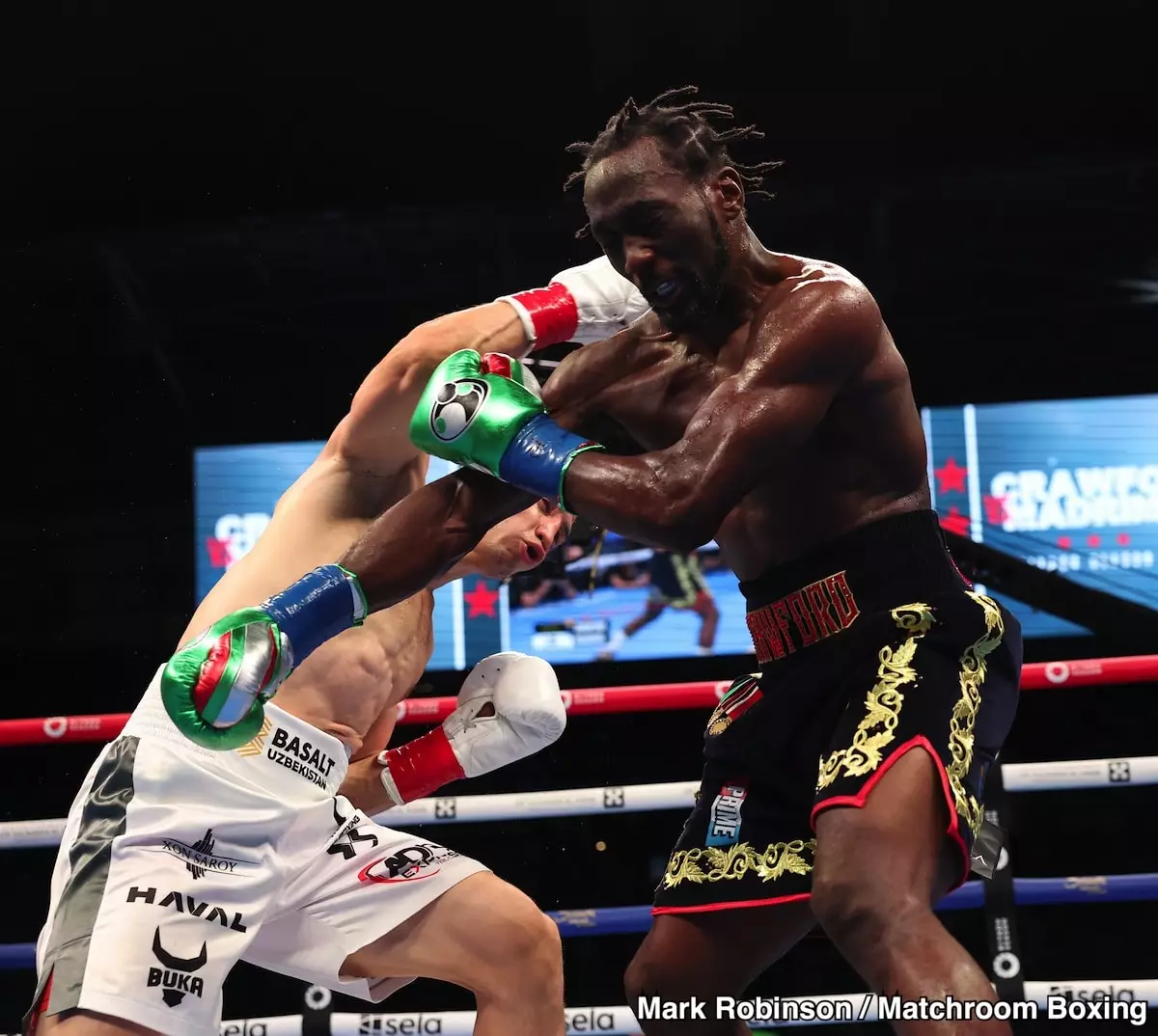The world of professional boxing is often a mix of athletic prowess and business strategy. Behind each fight, decisions are made that may prioritize financial gain over the sport’s integrity. The upcoming confrontation between Canelo Alvarez and Terence Crawford on September 13th has ignited significant discussion, particularly regarding fighter safety and the motivations behind the match. Sampson Lewkowicz, the promoter for David Benavidez, has voiced his hesitations about the bout, raising critical points on what this fight represents in the broader boxing landscape.
Lewkowicz views the upcoming Alvarez-Crawford fight through a skeptical lens, deeming it more of a business arrangement rather than a genuine sporting contest. This sentiment resonates with many boxing enthusiasts who discern the financial underpinnings at play in high-profile matches. The fight could be considered a monetary venture, drawing attention for ticket sales and pay-per-view revenue without emphasizing competitive merit. Crawford’s decision to bypass contenders in his current weight class and leap to a more formidable opponent like Alvarez reflects this business-first approach.
In an ideal boxing scenario, there exists a clear pathway for fighters to climb the ranks and earn their title opportunities through consistent performance against top rivals. However, Crawford’s singular plunge into the super middleweight pool, particularly against a champion like Alvarez, raises eyebrows. It appears less about true merit and more about maximizing immediate financial reward. This scenario brings to light an essential debate within boxing: how much of sport remains when commercial interests overshadow athletic competition?
Health and Safety Concerns in Combat Sports
A significant aspect of Lewkowicz’s concerns involves the health and safety of Crawford. The disparity in size and experience between Alvarez and the aging Crawford, who stands on the precipice of 38, prompts fears of a potentially brutal outcome. Lewkowicz recalls the devastating aftermath of the Canelo-Khan fight, where Amir Khan, significantly lighter, suffered a brutal knockout that left its mark not just physically but emotionally on those involved. Such imagery of fighters at risk not only brings a visceral reaction but also illustrates the inherent dangers of mismatched fights in boxing.
Crawford’s age, combined with his elevation in weight class without prior competition against elite fighters at that level, suggests a risky gamble. Lewkowicz is apprehensive about a similar fate befalling Crawford, fearing a scenario where the match could lead to severe injury or, worse, long-term damage to a once illustrious career. This aspect serves as a revealing commentary on the delicate balance between pursuing glory and ensuring the well-being of athletes.
Canelo Alvarez’s approach to matchmaking has earned him accolades as a shrewd promoter. He strategically selects opponents who pose challenges without jeopardizing his standing atop the boxing hierarchy. Lewkowicz openly expresses his desire to see Alvarez face off against Benavidez—a contender with more comparable advantages—rather than a bout that appears to exploit a lack of competitive integrity. Benavidez, as a unified champion himself, would arguably present a more deserving challenge and perhaps yield a more exciting spectacle for boxing fans.
Lewkowicz’s critique emphasizes a prevalent issue, as not all champions are inclined to face their most formidable challengers—a trend that can discourage up-and-coming contenders and fans alike. In this instance, the choice to leapfrog genuine contenders in favor of a financially attractive but strategically questionable fight echoes an ongoing dilemma in professional sports.
The forthcoming match between Canelo Alvarez and Terence Crawford propels a larger dialogue concerning health, business motivations, and the essence of competition in boxing. While it’s undeniable that high-stakes fights draw viewership and provide financial incentives for firms involved, the implications for fighter safety and the sport’s credibility cannot be ignored. The concerns articulated by Lewkowicz serve as a reminder of the ethical responsibility that promoters and fighters hold—to preserve not only the safety of athletes but also the integrity of the sport itself.
Boxing stands at a crossroads, as it wrestles with the forces of profit against the virtues of competition. As the world watches the Alvarez-Crawford showdown, it becomes increasingly vital to remember that beneath the glitz and glamor lies the fundamental need for trust, respect, and humanity in one of the oldest combat sports on the planet.

